From the 1/2 Classrooms
Just Right!

From the 1/2 Classrooms
Just Right!
Over the last two weeks, our Grade 1/2 students have been learning all about 'Just Right' books!
Students likened cycling to finding a book that is 'Just Right' for them. Our Grade 1/2s discovered that they need to select books that don't make them work too hard and provide enough of a challenge that, like a comfortable bike ride, they feel encouraged to use their muscles enough that they are staying fit, able to ride longer and enjoy the journey!
Our students were encouraged to select their own ‘Just Right' readers from our Grade 1/2 Library. Students were asked to select a book and to list interesting words and to describe their favourite part of the book. We encourage our students to continue selecting books that are comfortable for them.
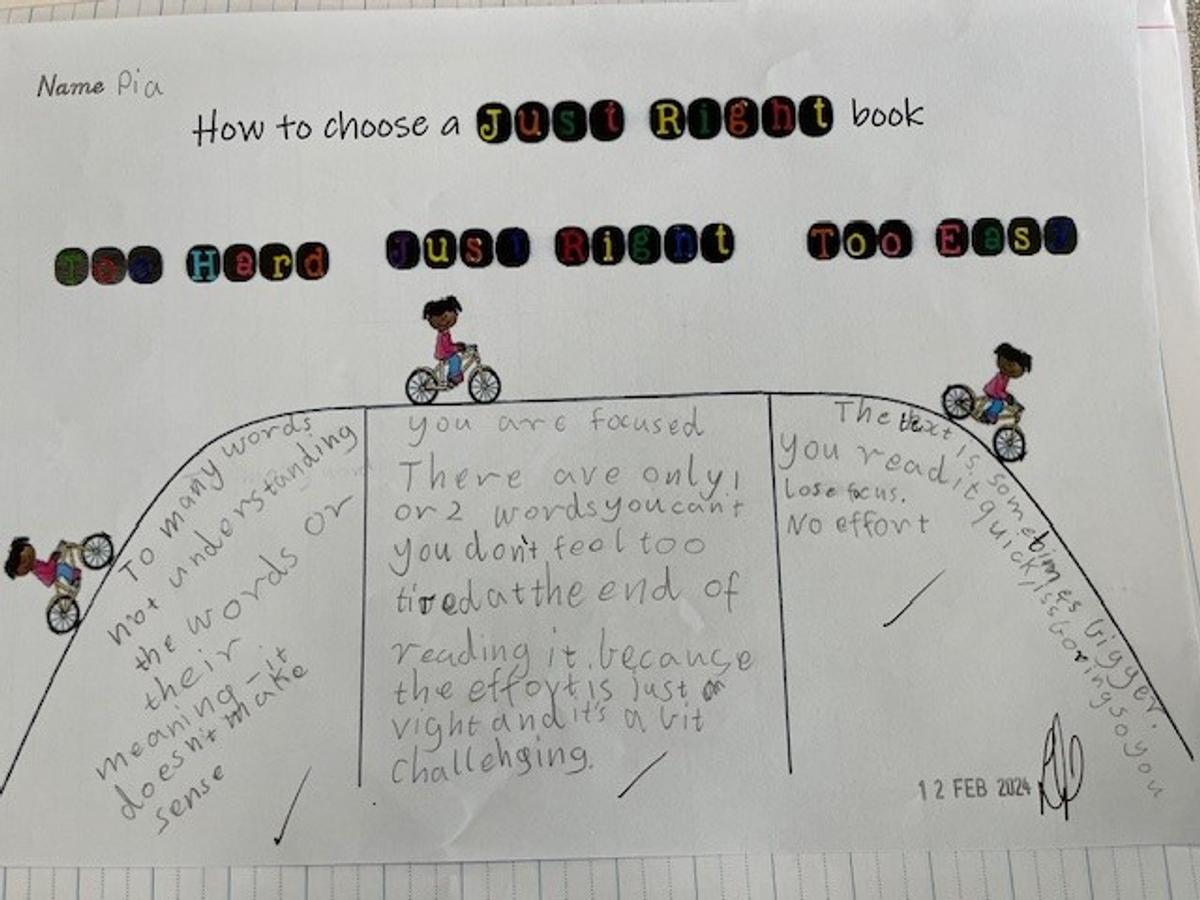

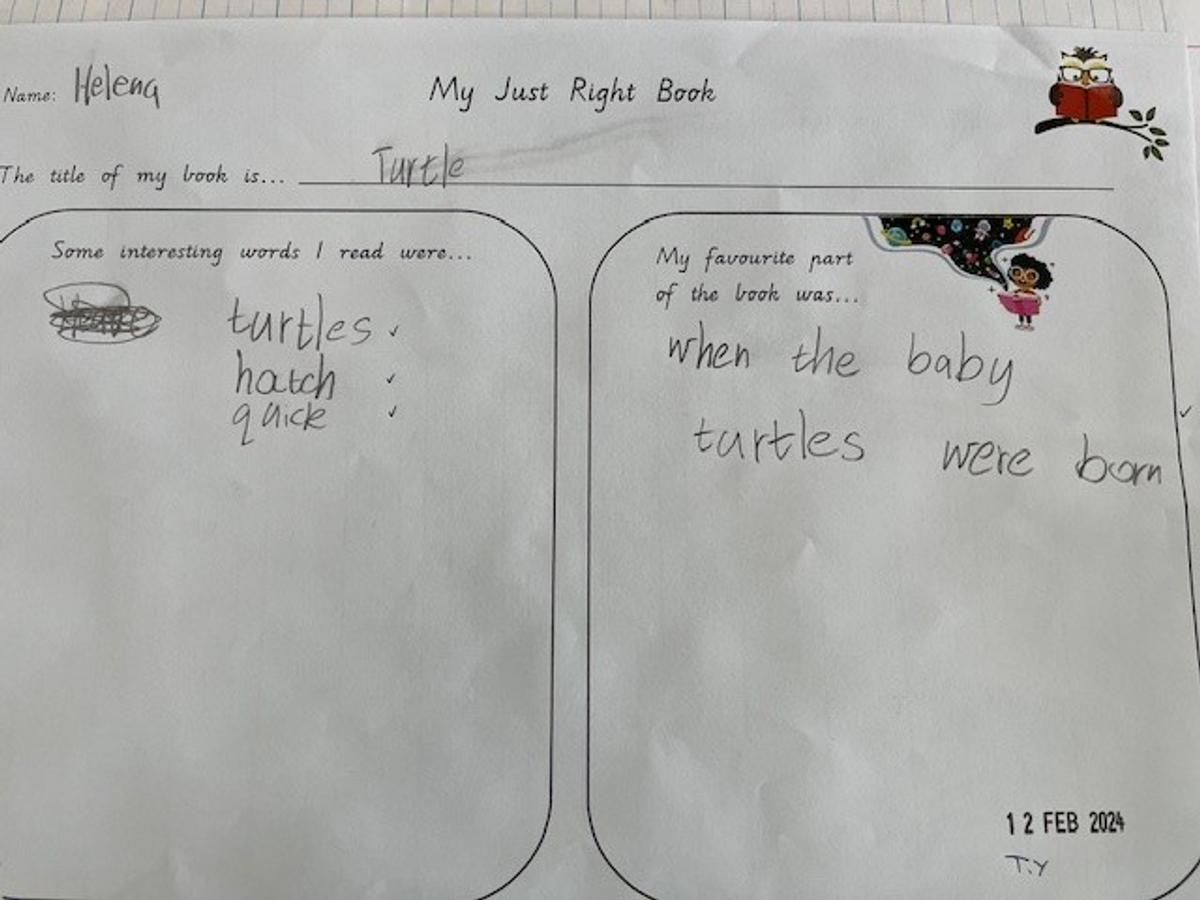
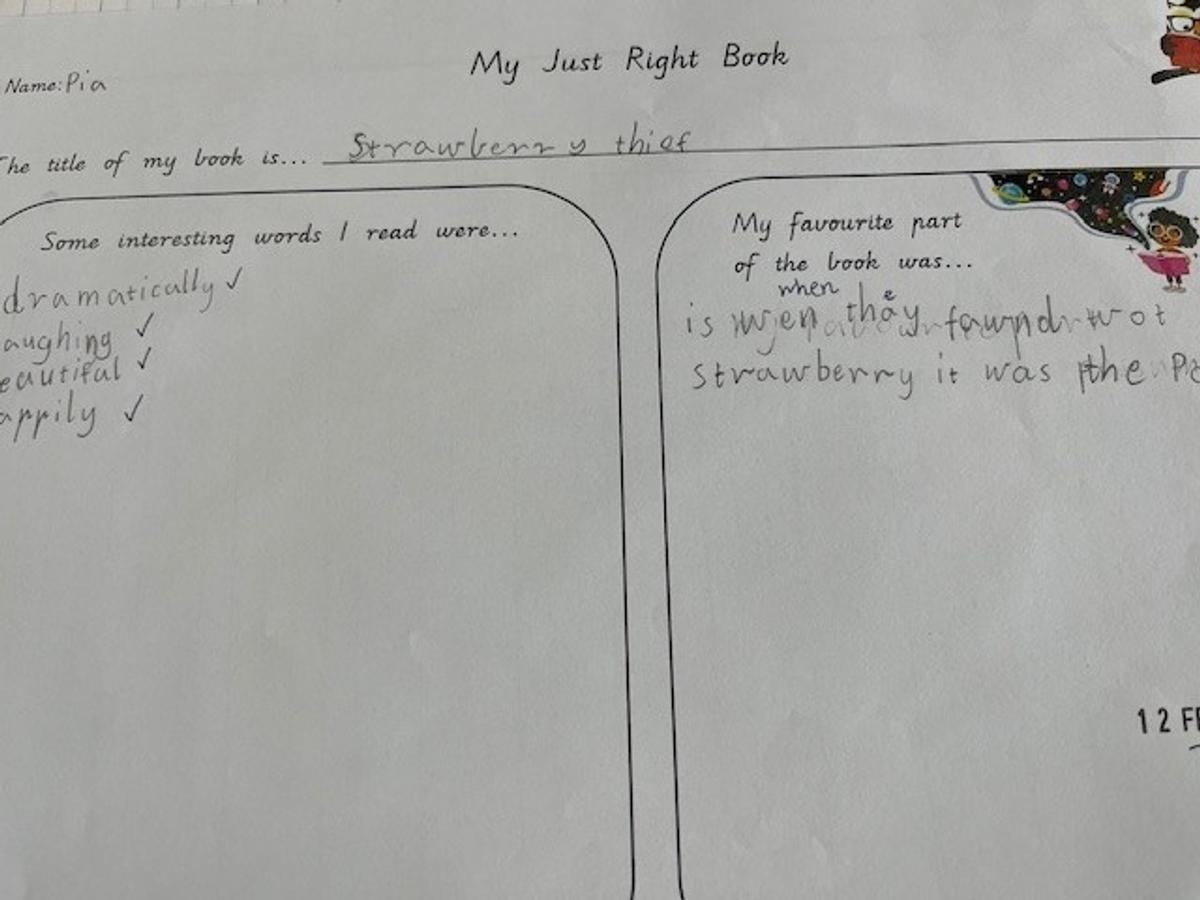
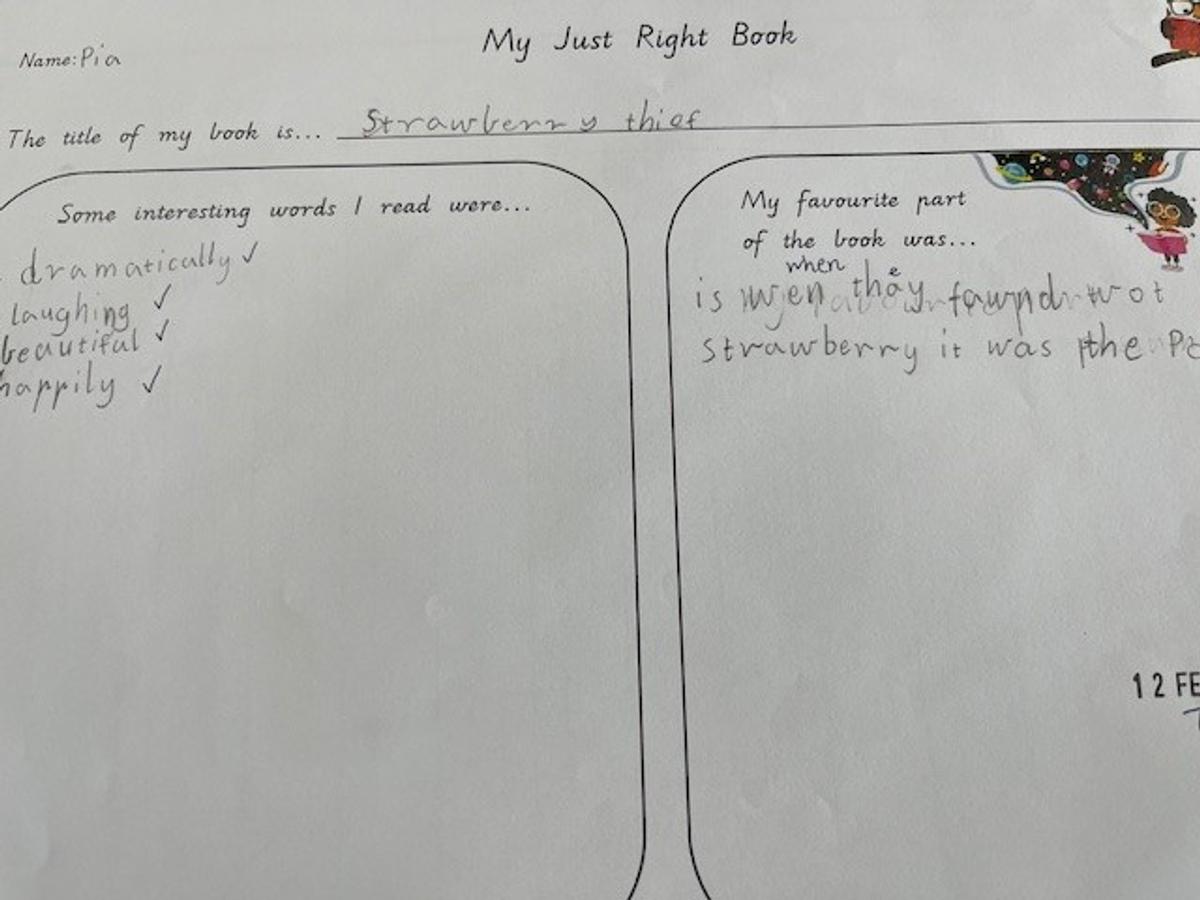
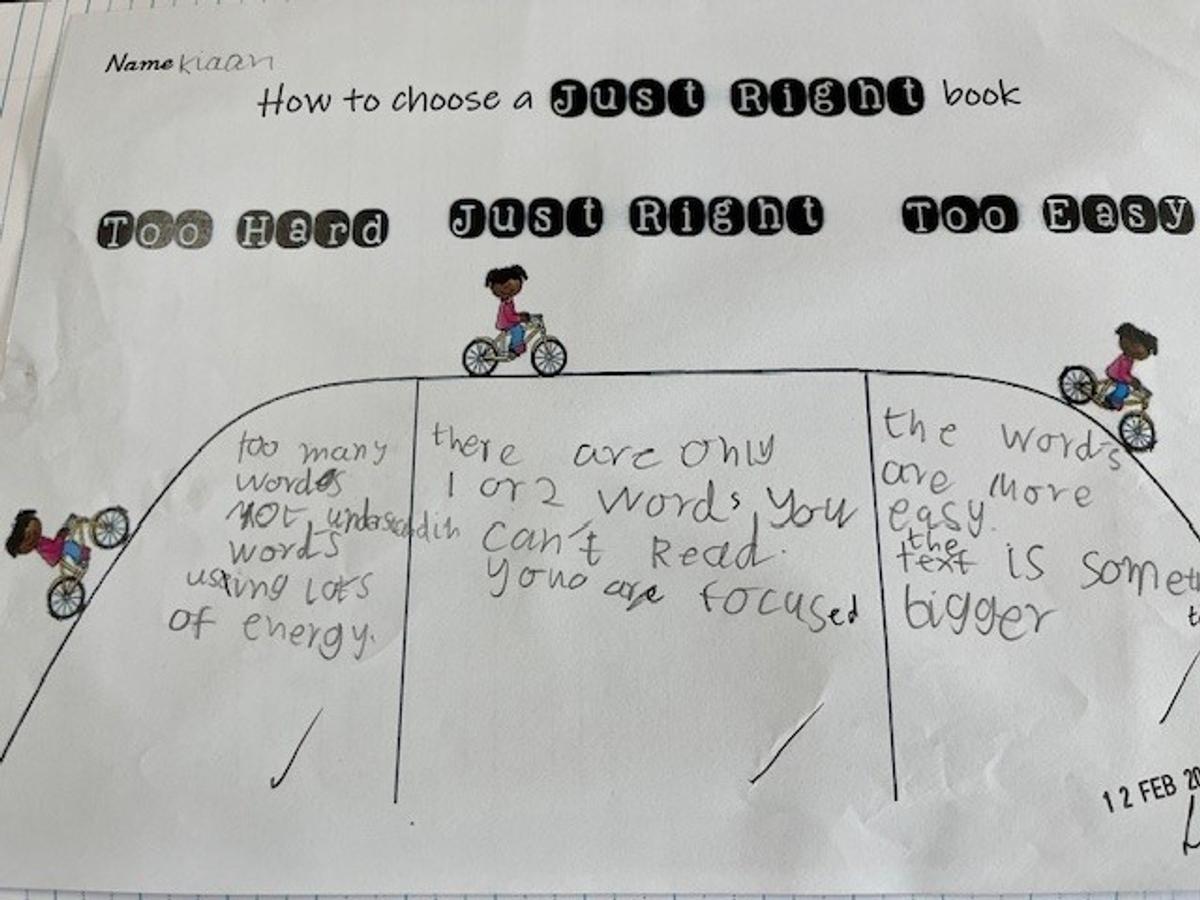
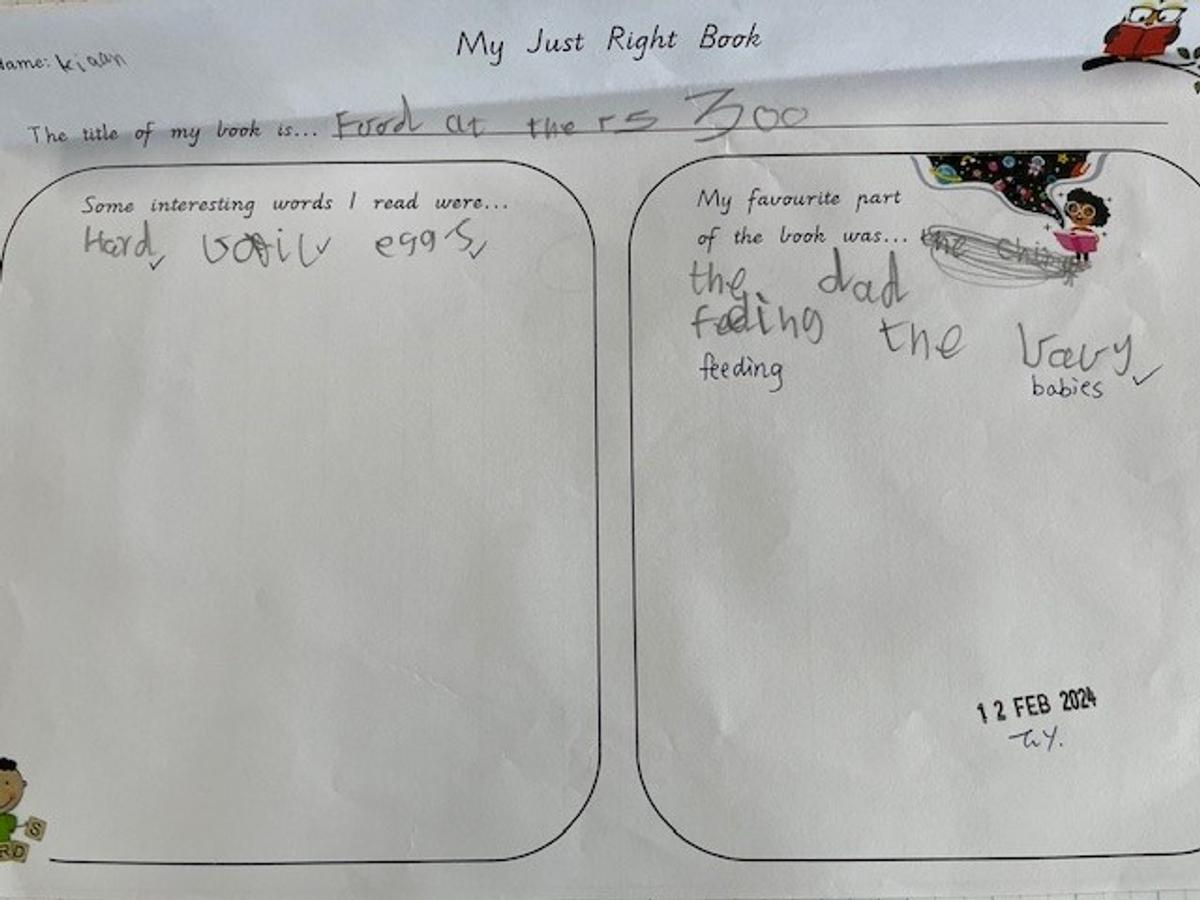
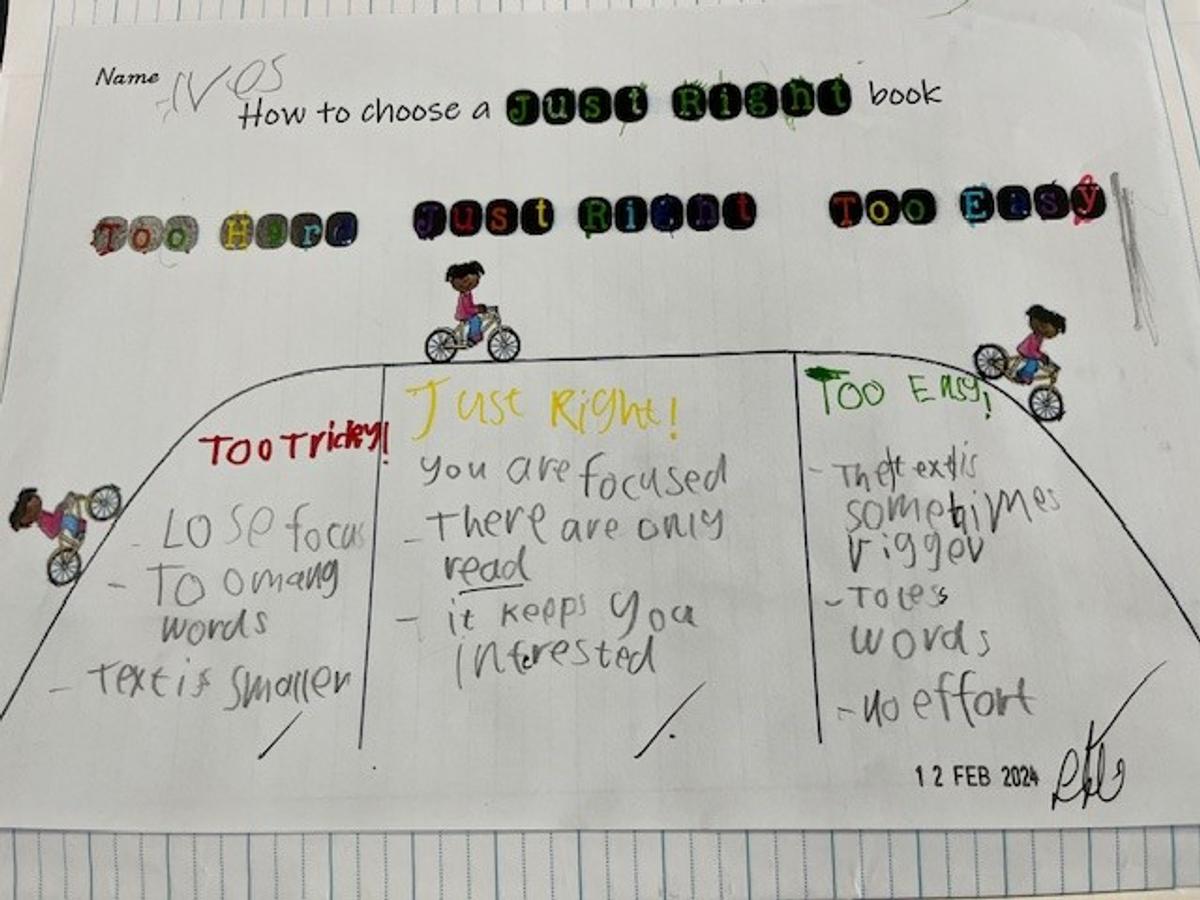

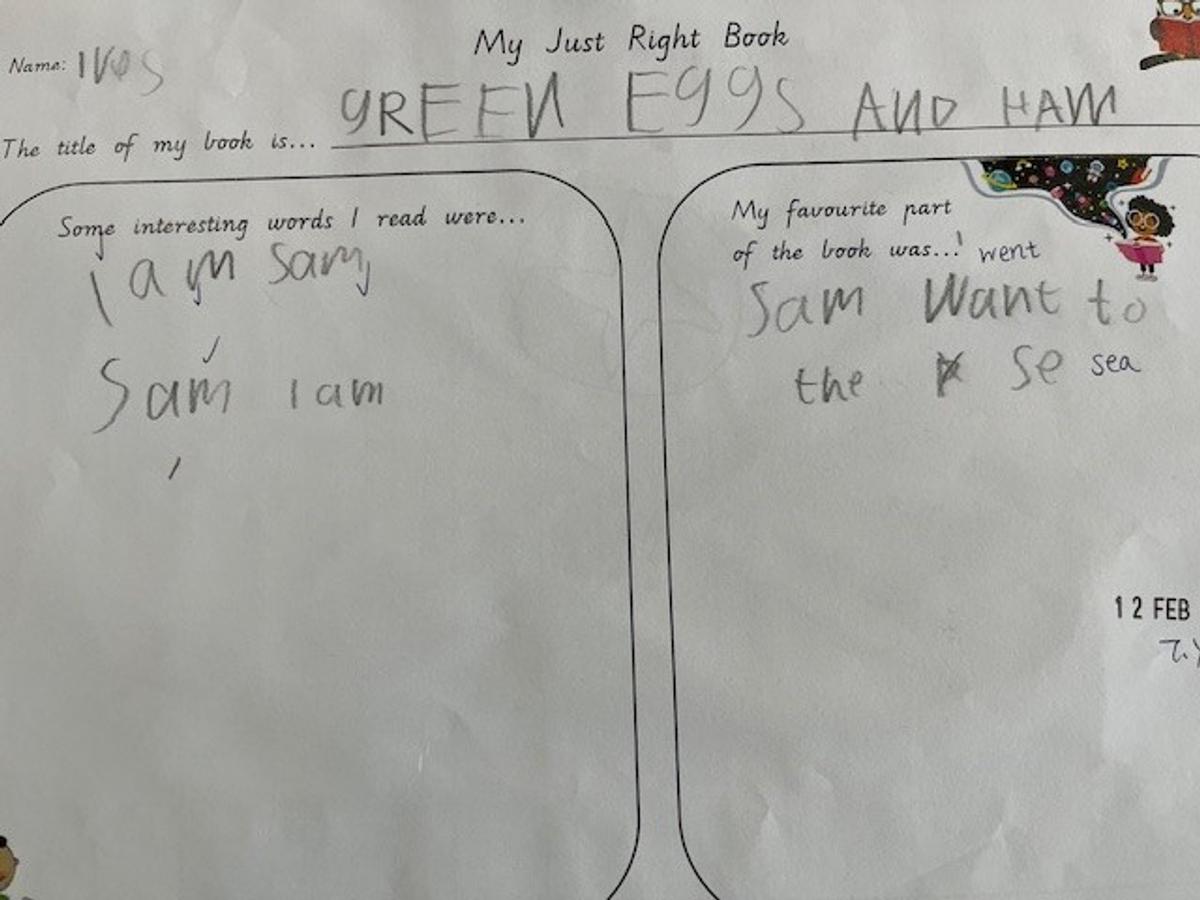
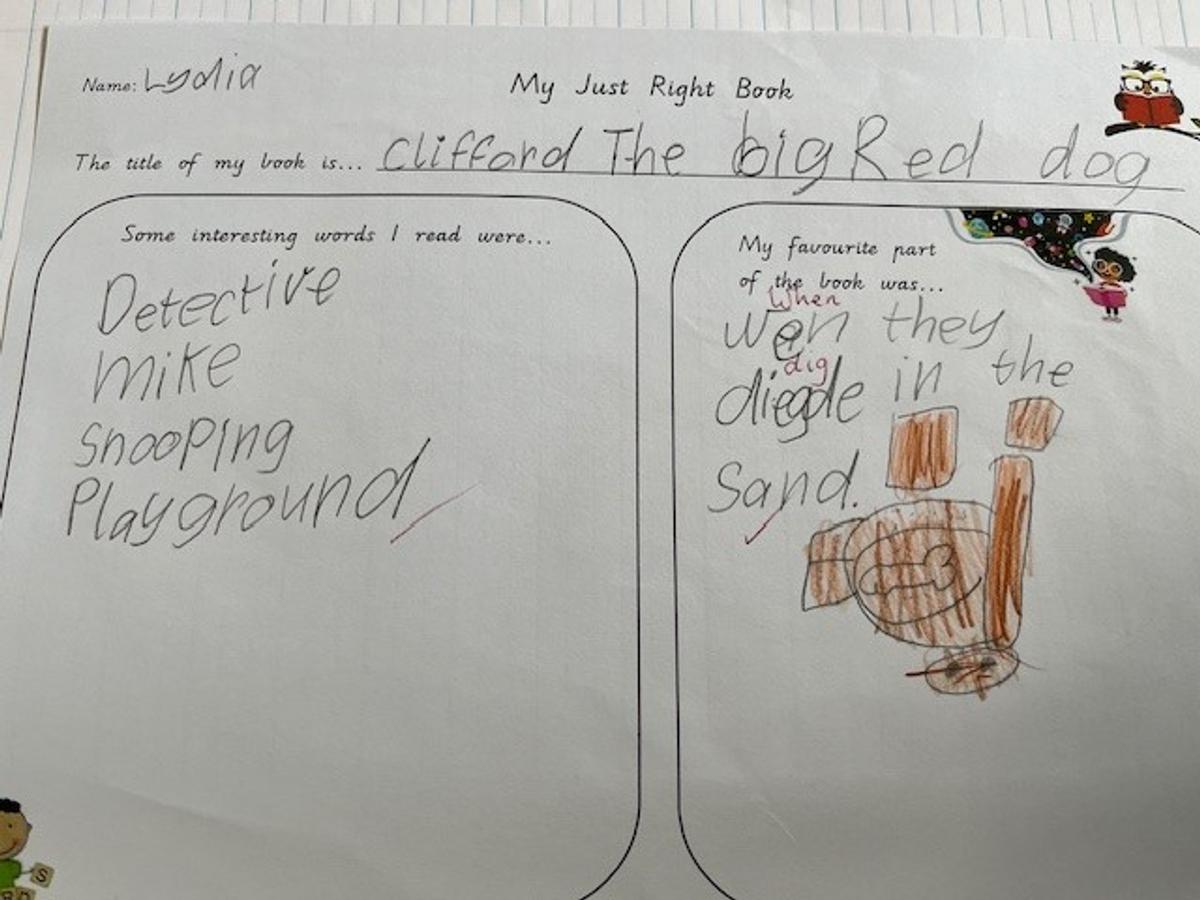
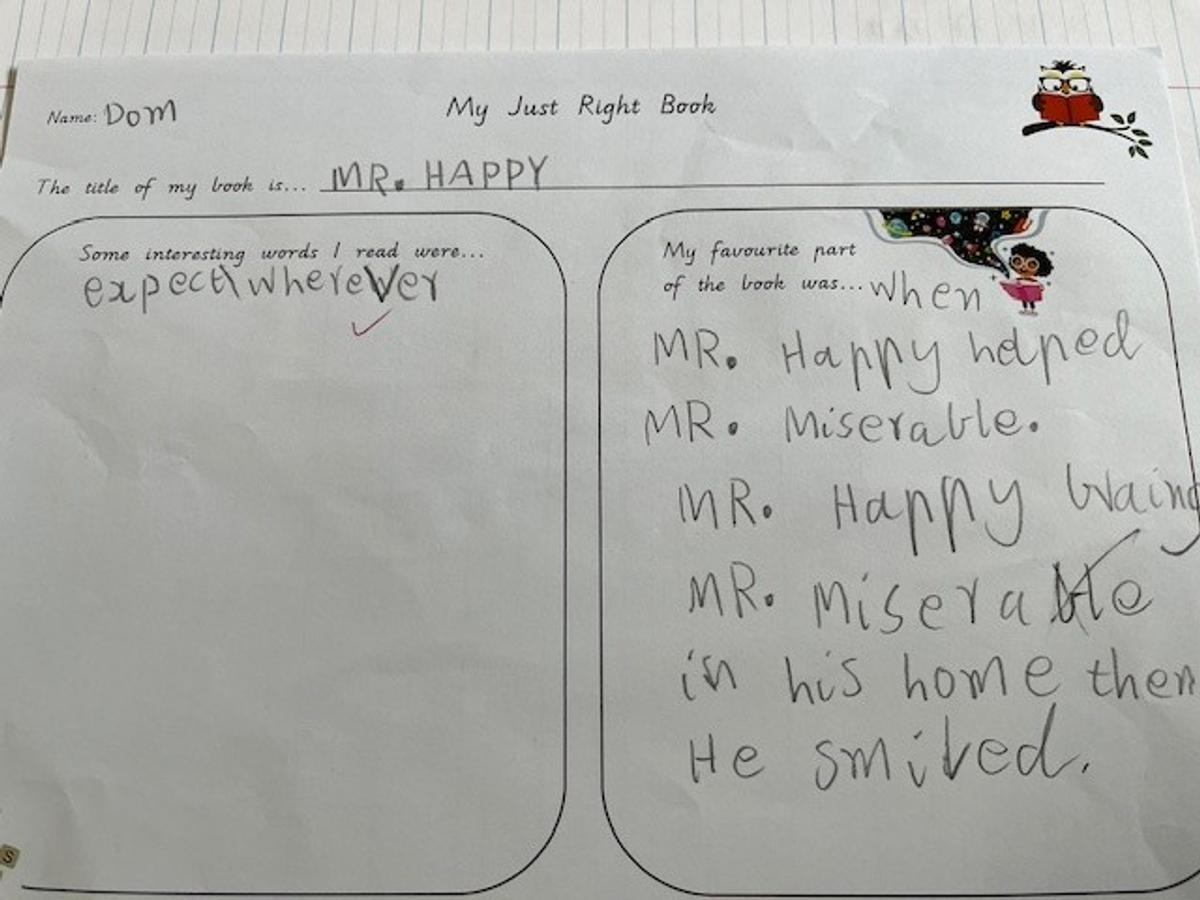

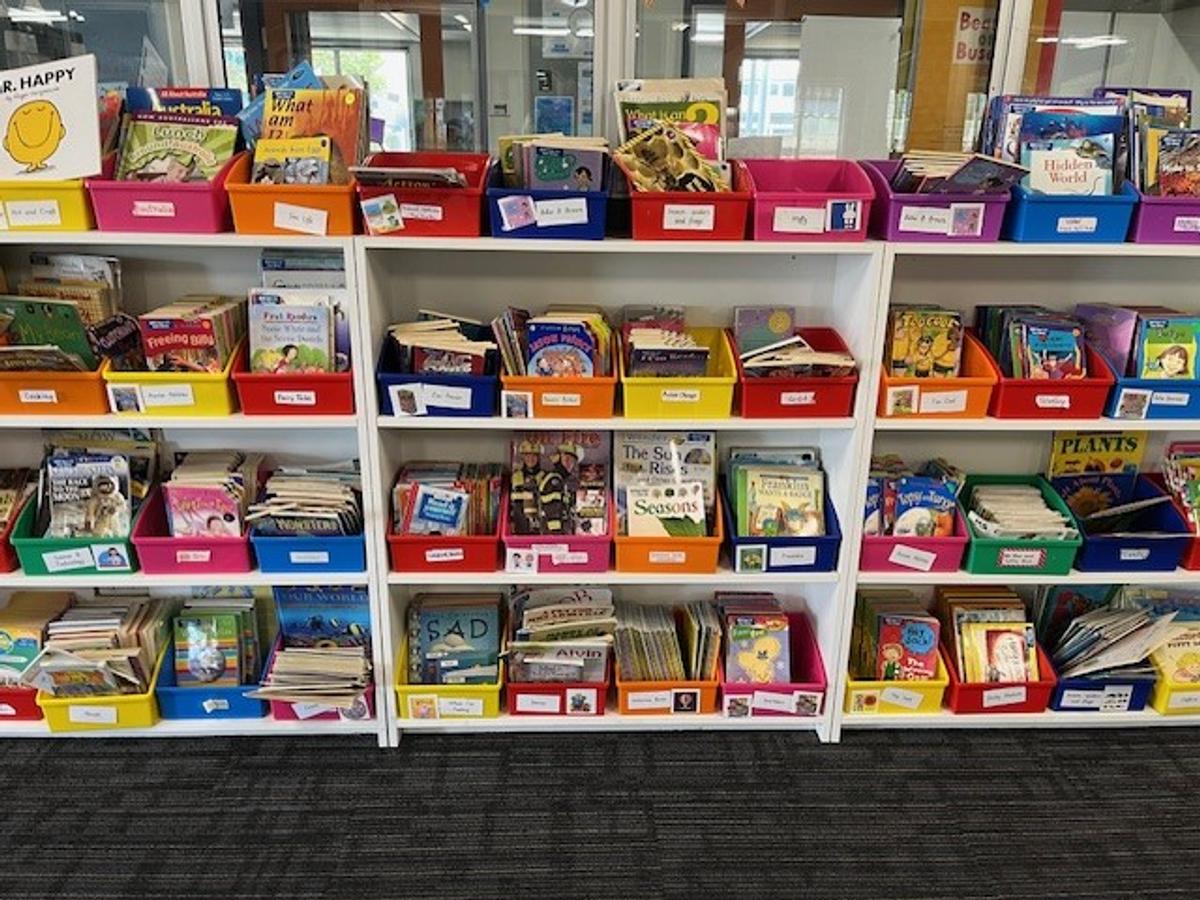














Supporting your child at home with reading at home
Helping your child work out difficult words
When your child begins to read to you, they will often have difficulty with long or tricky words. The following strategies will help them develop self-correcting skills and assist with their understanding of the text.
It is important to give your child time to work out difficult words themselves, because children can often self-correct if given the time. They read more slowly than we do and need the time to work it out.
Let the child persist a little, prompt by giving a hint such as “what is the first sound in that word?”
Questions to help prompt may include:
If the above prompts are not working, you can simply say: “The word is…”.
An important aspect of learning to read is praising children’s repeated attempts. Praise can be specific, for example, “Well done on re-reading that sentence, you worked out that word by yourself” or general praise such as “You are trying really hard, well done.”
Another good strategy is to ask your child how they worked out the word. This helps reinforce reading strategies they learn from you and from school.
Book Chat
Discussing the content and meaning of books is an important part of reading. Chat about the book before, during and after reading, and encourage your child to share their ideas and to ask questions about the book. Making links across the text by asking guiding questions encourages children to think about what they are reading.
Here are some questions you can ask before, during and after reading the book:
Thank you for your support when encouraging a love of reading at home!
Kind regards,
Maryanne Cozzio, Llaaneath Poor, Karin Tsiandikos-Huf and Paula Paziotis